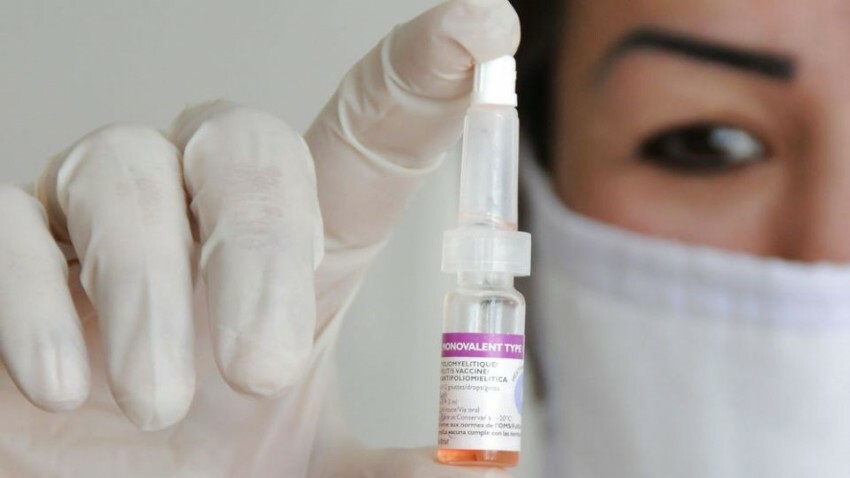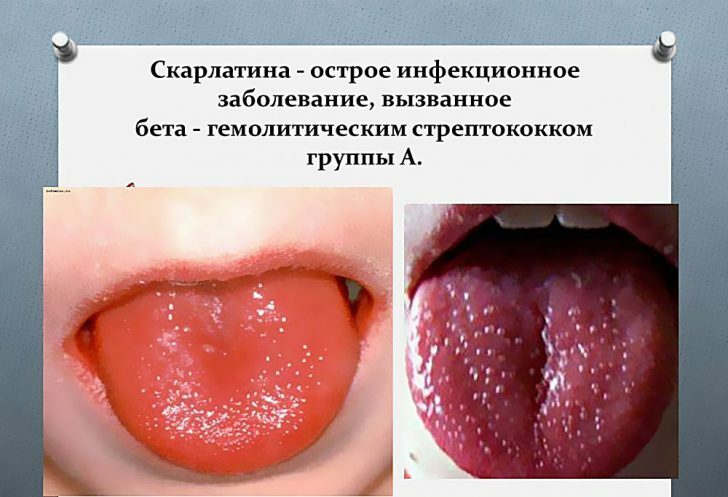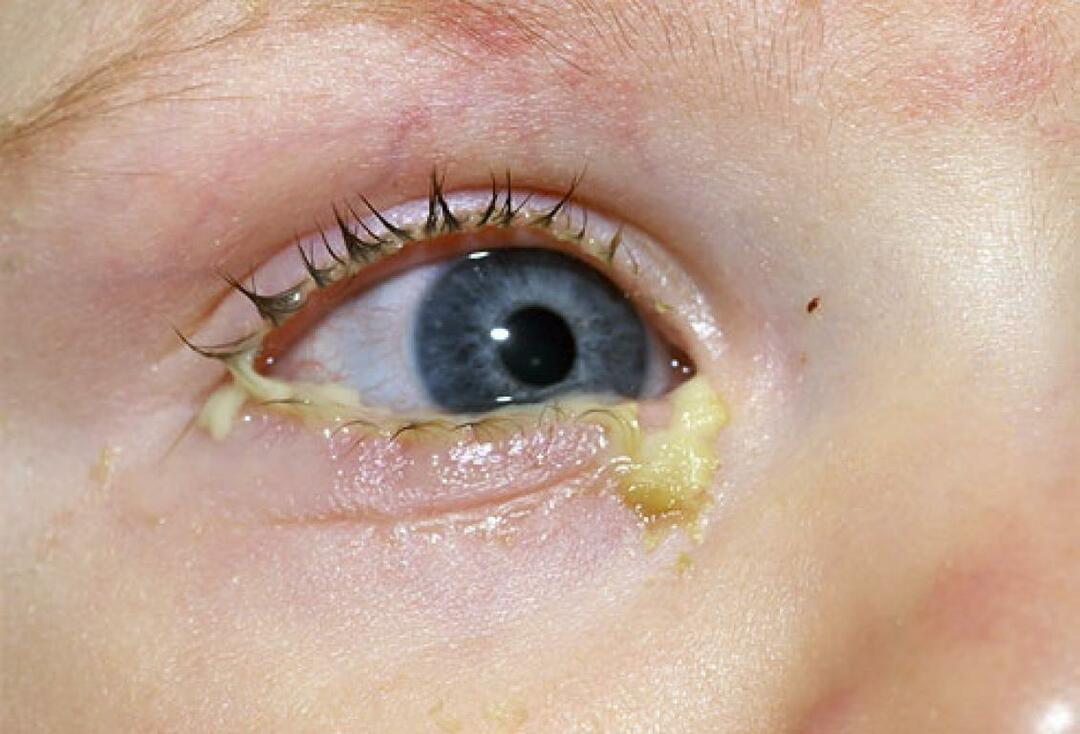Herpes
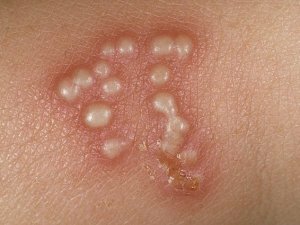 Herpes is a common viral disease. It is characterized by grouped blistering skin rashes and lesions of the mucous membranes. Sometimes the statistics of European studies on the prevalence of this disease is simply shocking. In the world, 90% of the population is the carrier of the herpes virus.
Herpes is a common viral disease. It is characterized by grouped blistering skin rashes and lesions of the mucous membranes. Sometimes the statistics of European studies on the prevalence of this disease is simply shocking. In the world, 90% of the population is the carrier of the herpes virus.
Herpes viruses are caused by viruses: HSV-1 and HSV-2.According to the international classification, there is primary and genital, recurrent herpes. There are also typical and atypical forms of asymptomatic genital herpes. Often there is a labile form of infection. In the people it is also called "cold on the lips."Second place in the prevalence is genital herpes, the term of which originated in the early 20th century. This infection affects mainly the genital area. Simple and genital herpes: symptoms, diagnosis, treatment of the disease will be discussed in more detail later.
Symptoms of herpes
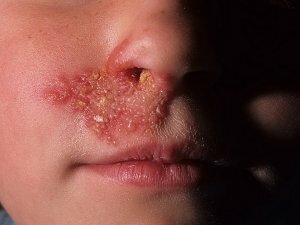 Like any disease, herpes also has symptoms, but over the years it has become much more difficult to detect herpes simplex virus, as in more than half of the cases it behaves not typical for this disease.
Like any disease, herpes also has symptoms, but over the years it has become much more difficult to detect herpes simplex virus, as in more than half of the cases it behaves not typical for this disease.
The HSV-1 virus causes the following medical disorders:
- Skin infection can affect areas of the skin, mucous membranes. On the skin appear small, tense bubbles. The rashes are arranged in groups. When a disease of herpes simplex, these bubbles appear on the lips, nose, in the auricles.
- Before shedding a person infected with a virus, you may get a burning sensation, malaise, weakness.
Genital herpes is divided into primary and recurrent. That's why the symptoms of herpes will differ.
Symptoms of primary genital herpes are as follows:
- This type of infection usually passes asymptomatically, which leads to the further development of latent recurrent herpes.
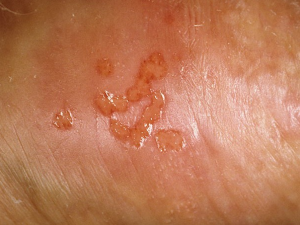 This is the most dangerous form of herpes if we talk about its spread. The fact is that a person, not knowing that he is infected with a virus, continues to actively sex life and infects partners.
This is the most dangerous form of herpes if we talk about its spread. The fact is that a person, not knowing that he is infected with a virus, continues to actively sex life and infects partners.
It should be noted that during the initial development of the herpes is especially contagious:
- Rashes in the genital area. They can be located at the woman not only outside, but also inside the vagina, the urethra, on the hips, legs.
- Grouped, small vesicles with fluid appear on the genital mucosa, markedly reddening around them.
- After 4 days, the vesicles burst and erosions appear, less often the sores.
- Body temperature can be raised to 38 degrees
- Rapid urination.
- Muscular and headache.
After primary infection with the herpes virus, a person becomes the carrier of this virus, which has passed into the latent stage, that is, not during the active period, therefore, with a decrease in the protective properties of immunity, there is a possible possibility of manifesting this virus again.
Diagnosis of herpes
The development of medicine has contributed to the improvement of methods for diagnosing herpes.
To date, the following types of diagnostics are used:
- Virological method of detecting the presence of herpes simplex viruses in the human body.
- Methods for the detection of antigens of herpes.
- Cytomorphological method.
- Evaluation of immunity.
Methods for diagnosing herpes simplexes of the first and second types are divided into two groups:
- Identification and isolation of the virus.
- Detection of specific antibodies of the virus in serum.
The enzyme immunoassay( ELISA) method is the most common and is increasingly used in the diagnosis of herpes. The polymerase chain reaction method helps to determine the type of virus that a person is infected with.
Treatment of herpes
To date, there has not yet been invented a cure for herpes. The drugs that lie on the shelves of the pharmacies suppress the reproduction of the infection, but are not able to remove fragments of the virus DNA from the neurocytes. Therefore, there is an increased likelihood of disease in immunodeficiency. Treatment of herpes with antiviral drugs makes it possible to suppress the activity of the virus.
For example, to reduce pain and fever, use ibuprofen, paracetamol. Anesthetics such as lidocaine, tetracaine, benzocaine only relieve itching and pain.
It is also possible to treat such antiviral drugs as valacyclovir, penciclovir, acyclovir, famciclovir. These drugs can be purchased at the pharmacy without a prescription.
Alternative methods of treating herpes include, for example, echinacea. Preparations based on this plant have a general immunity-enhancing action. Lysine - an essential amino acid is a plastic material for tissue regeneration.
On the rash it is recommended to apply zinc ointments, which they dry and moreover have antiseptic and anti-inflammatory properties, promote rapid healing of wounds. The same properties have an extract of aloe and propolis.
Prevention of the disease
Of course, it is difficult to talk about the prevention of herpes, when there are so many carriers of this virus, but still some simple recommendations can help protect against this disease.
So, the main rule - lead a healthy lifestyle. Then you will be less likely to attack all kinds of viruses. Eat right, eat vitamins, harden. If you have weak immunity, then try to strengthen it, since this factor is important in protecting the body from pathogenic microorganisms.
Be sure to follow the rules of personal hygiene, that is, never wipe yourself with another's towel, do not contact a person who has obvious damage to this virus on his face.
It is recommended that women visit the gynecologist once a year and conduct diagnostics of diseases that are transmitted sexually: gonorrhea, syphilis, mycoplasmosis, etc. With a constant change of sexual partners, it is recommended that you regularly take tests for herpes.
No one is protected from disease, but the implementation of recommendations and timely access to a doctor can reduce the risk of this disease.

